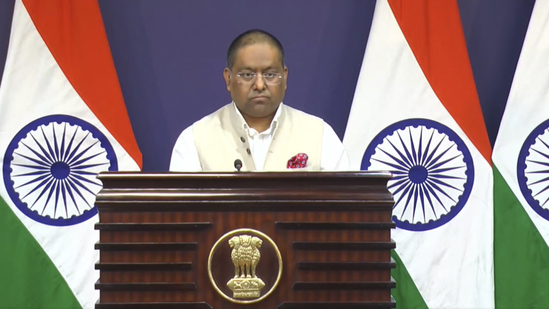The clarification came after US Commerce Secretary Howard Lutnick’s submission in a court in response to a legal challenge to Donald Trump’s tariff policy. The Centre on Thursday reiterated India’s position that arriving at a ceasefire understanding with Pakistan on May 10, after “Operation Sindoor,” was not linked to any discussions on trade with the United States.
The clarification came in the wake of US Commerce Secretary Howard Lutnick’s legal submission in a court that the ceasefire understanding between India and Pakistan was only achieved after US President Donald Trump offered trading access to the two nuclear-armed neighbours. The submission, dated May 23, was in response to a legal challenge by US business owners against Trump’s tariff policies. Lutnick’s claim stated, “President Trump interceded and offered both nations trading access with the United States to avert a full-scale war.”
In a weekly media briefing on Friday, the ministry of external affairs spokesperson Randhir Jaiswal said that India’s position on US claims has been “well articulated.” “From the time Operation Sindoor commenced on May 7, till the understanding of cessation and military firing on May 10, there were conversations between Indian and US leaders on the evolving military situation. The issue of trade or tariffs did not come up in any of those discussions,” the spokesperson said.
“The external affairs minister has also made it clear that the cessation of firing was decided upon through direct contact between the DGMOs of India and Pakistan,” he added.
US court rules against tariffs
The US Court of International Trade on Wednesday ruled that a majority of Donald Trump’s tariff policies are illegal and ordered a stay on them. The ruling applies to Trump’s 10% reciprocal tariff on all trade partners, levies on Chinese imports and other countries and fentanyl-related tariffs on China, Canada and Mexico. The submission sheds light on the Trump administration’s potential use of trade access in case of conflict between countries.
The Commerce secretary submitted in court that invalidating Trump’s use of “Emergency powers” would dismantle a cornerstone of national security architecture, harm Washington’s ability to respond to “foreign threats”, and disrupt foreign policy-related economic actions.The US Justice Department has filed a notice of appeal on the ruling.



